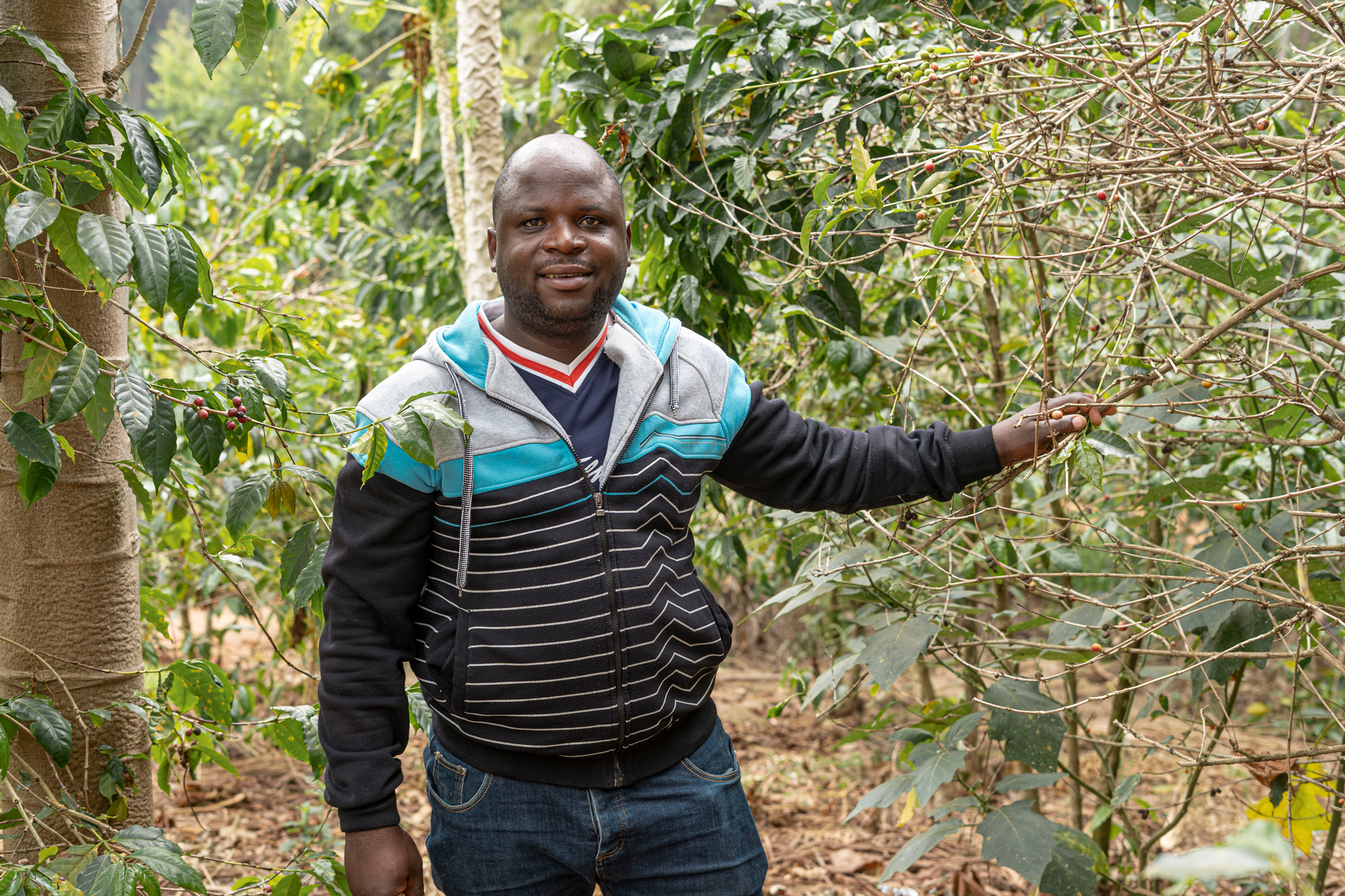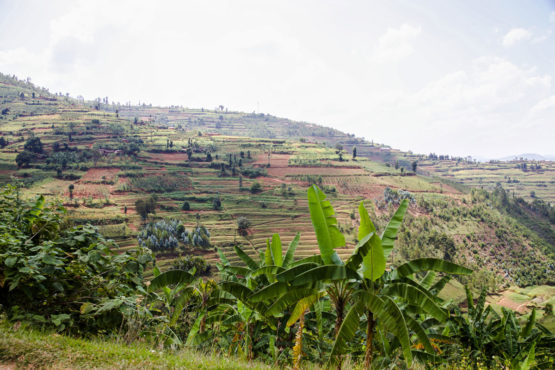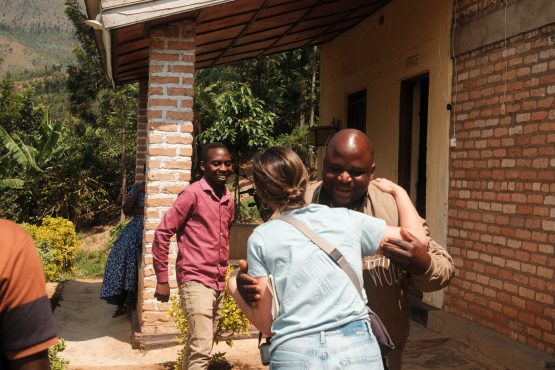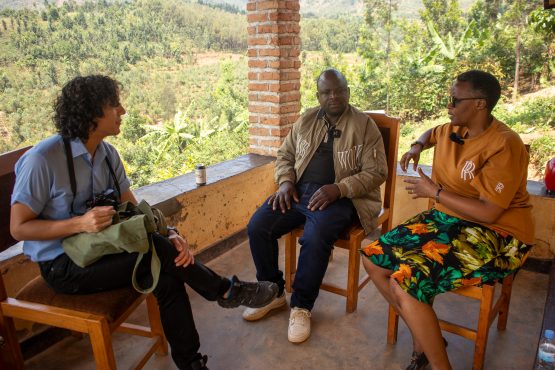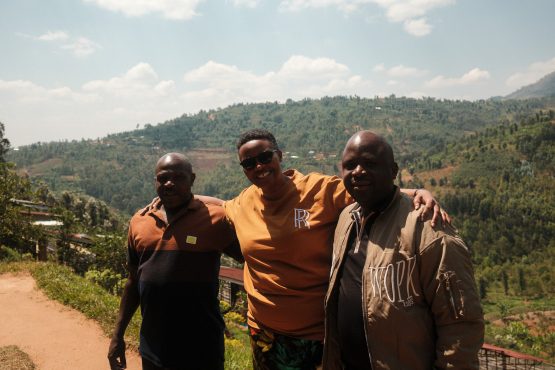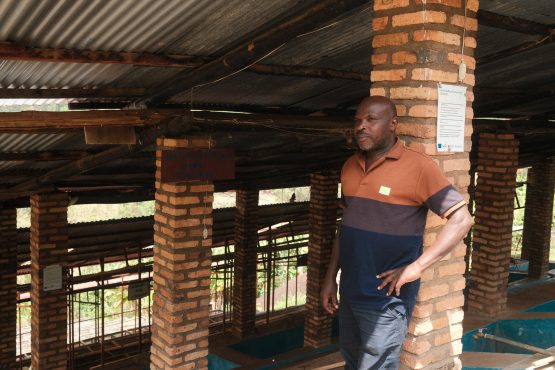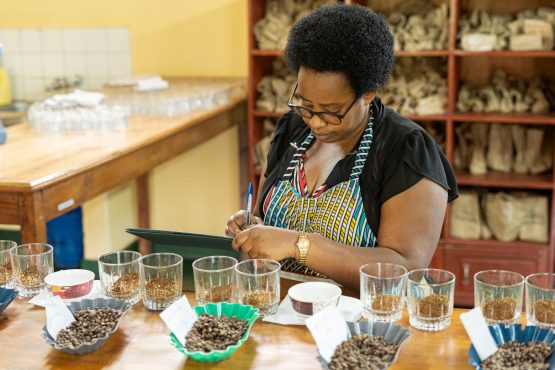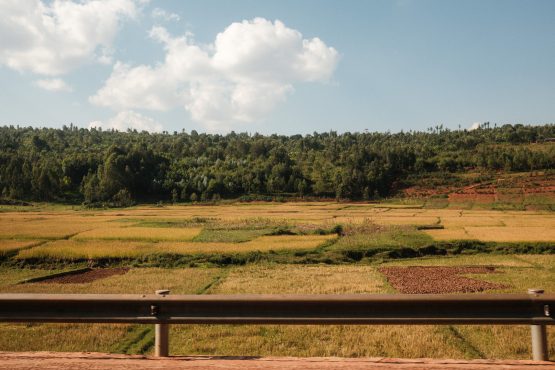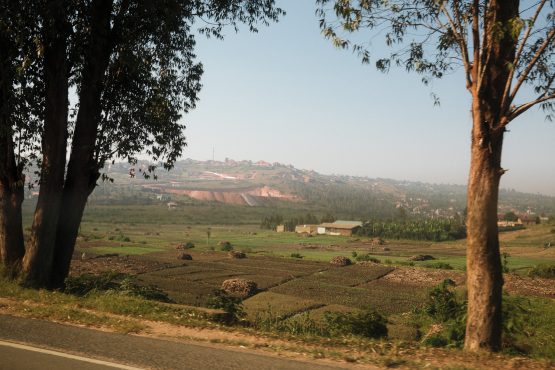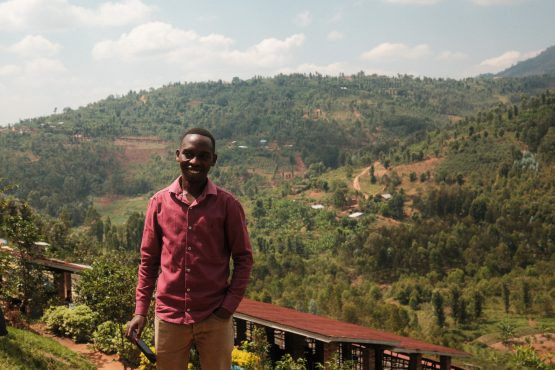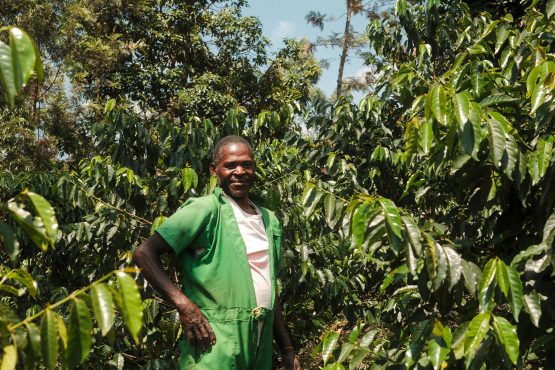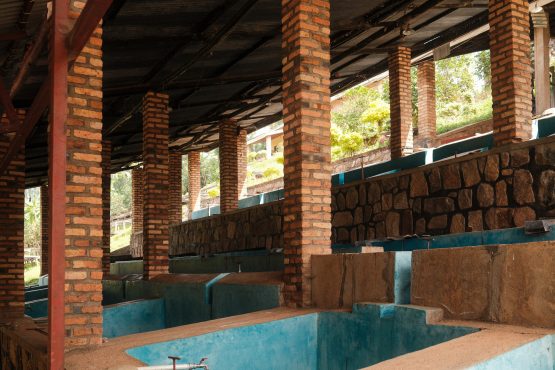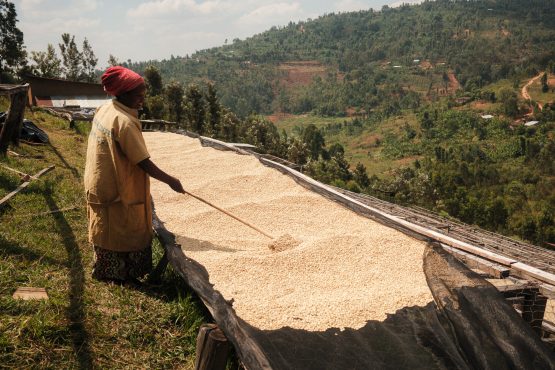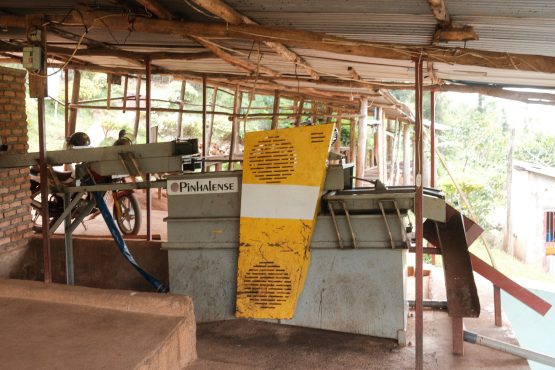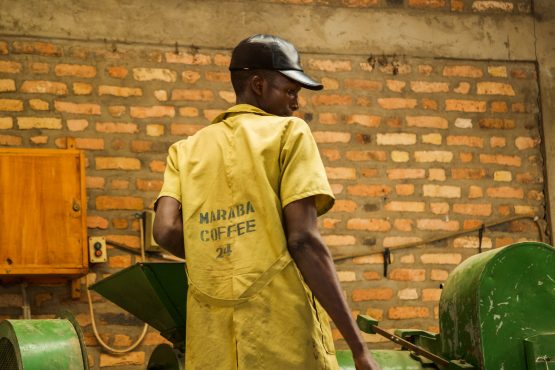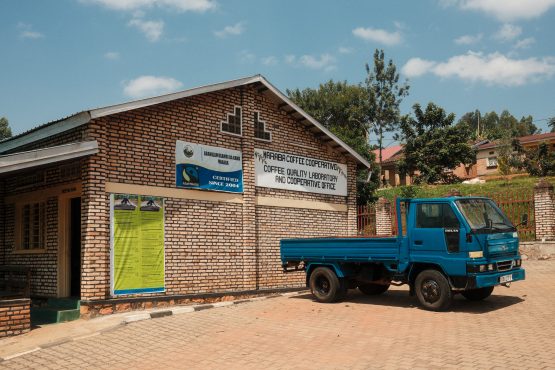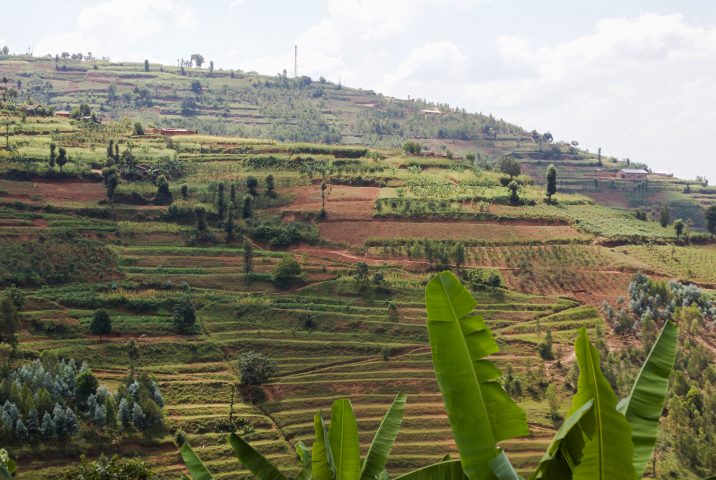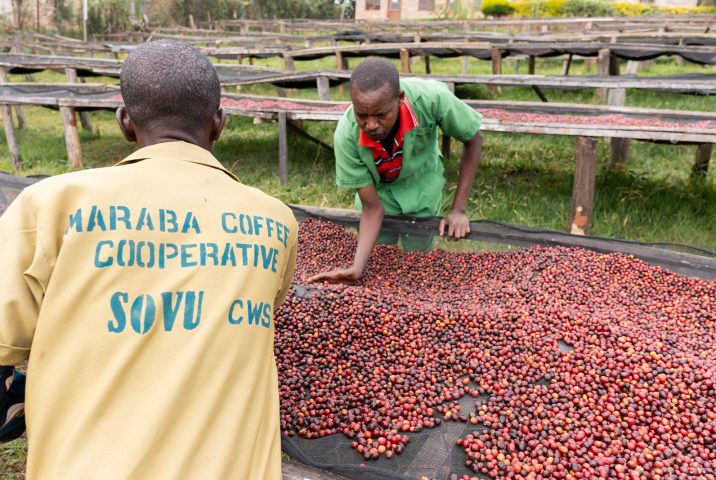Philippe Sinayobye
Bright mandarin acidity with syrupy mouthfeel. Red apple and yellow peach with cacao nibs on the finish.
We feel extremely fortunate to be able to share this very special microlot from producer Philippe Sinayobye. Still in his thirties, Philippe represents the bright and exciting future of specialty coffee production in Rwanda.
Single producer microlots like this one are not very common in Rwanda. In this case, it is made possible due to the size of Philippe’s farm, which totals just under one hectare and includes some 4,000 coffee trees (making it considerably larger than the average size farm for the region). Philippe is also a member of the Abahuzamugambi Ba Kawa Maraba cooperative (or simply Maraba), who operate their own dry mill where they can process smaller lots individually, whilst minimising cost and maintaining excellent quality standards.
Philippe’s farm has been recognised by the cooperative as delivering exceptional coffee cherries, thanks to the good amount of shade trees planted, and Philippe’s use of organic fertiliser. By processing his lot separately, Maraba can showcase regional distinction and offer differentiated lots for buyers; for Philippe, the reward is in selling his whole crop, and building a name and market for his coffee internationally.
Philippe’s farm sits at 1,800 meters above sea level in the lush, green hills of Rwanda’s Southern Province. He first inherited the property from his parents after they passed away. As the eldest sibling, Philippe was forced to take on the responsibility of looking after the family and found a profitable opportunity in coffee while remaining connected to his parents’ heritage. A forward-thinking man, Philippe has continued to expand the number of trees he tends to — he’s convinced he can reach a total of 6,000 trees in the coming years.
Today, the farm is managed by Philippe with the help of his wife Angelique Muhayimana, and his siblings. The family also employ additional workers to help them with the picking during the harvest. Along with coffee, the property grows cassava and beans for consumption. Philippe’s production is processed at Kabuye washing station, as it is the closest of Maraba’s sites to his home.
For years, we purchased Philippe’s coffee without having the opportunity to meet him face to face, as lining up a time when he was free during our visits mid-harvest was complicated. When we finally had a chance to shake his hand in 2023, we were surprised by how young he was, and delighted by his calm disposition and his positive, forward-thinking outlook on life. When we asked how he managed any challenges that arose during the harvest, he told us, “I keep motivated because I know that I can do it. Coffee production is like a cycle, so, if it doesn’t do well this year, you have to think that next year it can be good for you. So, you have to work hard so that next year it can be good for you.”
Since then, every time we meet Philippe, he receives us with warmth and excitement. On our most recent visit he told us that knowing his coffee was being enjoyed in Australia is “a great encouragement to me. I can put more effort to expand and increase the production, so that you can expand the market of the coffee. Just be patient with me as I expand the farm to maintain and increase production for you.” In the near future, he plans to take a well-earned holiday with his earnings from coffee, and hopes to open a shop in town, as it would provide him and his family another source of income to rely on during the off-harvest months.
ABOUT MARABA KABUYE WASHING STATION
Kabuye washing station was established in 2005, and it is the steepest and most picturesque of Maraba’s washing stations, servicing nearly 500 cooperative members. These include four individual youth farmer groups, made up of around 35 young members each. Daily operations are overseen by Christian Rizigama, who is supported by the Head of Quality Control, Christine Ilibagiza. Because Christine cups every one of the cooperative’s lots, she plays an important role in directing the year’s production, as she gives station managers instructions to follow, to ensure everything Maraba processes is clean, transparent and rich in sweetness.
As one of the co-op’s first members (he joined in 2002) and a site manager for over 17 years, Christian Rizigama is deeply committed to Maraba’s work in the region and has seen the impact of the cooperative firsthand. Working with producers like Philippe, he told us, was very encouraging, as it guarantees the future of specialty coffee in Rwanda. Christian is also a member of the co-op who delivers his crop to neighbouring Cyarumbo washing station, which is also owned by Maraba. As he gave us a tour of Kabuye on our most recent visit, Christian’s conviction that coffee has great potential to unite and enrich the local community was evidenced by the close friendship he has developed with Philippe and many of the other Maraba members who deliver their crop to the site.
The area around Kabuye washing station has ideal growing conditions for exceptional coffee, with high elevations, good rainfall and steady, cool temperatures year-round. When driving through the region, colourful parcels of land growing all manner of food crops can be seen, as the soil here is incredibly fertile. Like most washing stations in Rwanda, Kabuye receives cherry from local farmers who tend to very small plots — often consisting of only a few hundred trees. These are then processed together as a mixed lot from multiple growers, and usually only separated as day lots (ie. cherries that were all picked on the same day). Producer group or single farm lots like this one are incredibly rare and very special, as separating them is often seen as expensive and impractical. The cooperative can do this efficiently at Kabuye, thanks to the meticulous protocols implemented by manager Christian.
Along with support during the harvest, Maraba also provide year-round agronomy workshops to all their members. This initiative is spearheaded by the co-op’s enterprising Head Agronomist Jean Baptiste Munezero, who instructs community leaders on the best practices needed to grow high quality cherry. They then share their learnings with their neighbours and friends. By creating a chain of information, Maraba is able to reach a wider audience without requiring many resources. Jean, or Bati, as he is known to friends and colleagues, is a banana farmer and the son of a coffee grower who delivers to Kabuye, and his role is crucial to Maraba’s success. Because he is responsible for ensuring farmers’ volumes increase, he is across all of Maraba’s yearly production and is in constant communication with washing station managers throughout the harvest.
As part of their commitment to quality and sustainability, Maraba cooperative has invested in upgrading the cherry sorting equipment and a water treatment facilities at each of their washing stations. They have also built a warehouse that is easily accessed from each of their processing sites, where parchment is safely stored before being transported to Kigali for final stages of milling and preparation for export. The complex will also soon feature a roastery and café to host visitors.
Head here to learn more about the work of Maraba Cooperative.
PROCESSING AT KABUYE WASHING STATION
The team at Kabuye Washing Station take a huge amount of care in sorting and processing their coffee. Maraba operate a QC lab and own their own dry mill, enabling them to control quality all the way through to export. Because of its steep topography, all lots processed at Kabuye rely on gravity to be transported from weighing shed to drying beds.
- Cherries are delivered to the washing station on the same day as they are picked and are inspected and sorted to ensure only the very ripest cherries are processed. They are then machine-sorted by density (and any floaters removed and returned to contributing farmer, to be sold at the local market) and pulped on the same day—always in the evening—using a mechanical pulper that divides the beans by weight (the heaviest usually being the best).
- After pulping, the coffee is fermented overnight for around 12–18 hours and checked regularly, to feel the stickiness of the remaining mucilage, as this determines when fermentation should stop. The beans are then washed with fresh water (sometimes up to five times) and moved to raised screens for ‘wet-sorting’ by hand.
- As with most washing stations in Rwanda, women do the majority of hand-sorting. This takes place in two stages—on the covered pre-drying tables and on the drying tables. Washed beans are moved from the wet fermentation tanks onto the pre-drying tables, where they are intensively sorted under shade for two days. The idea is that green (unripe) beans are still visible when they are damp, while the roofs over the tables protect the beans from the direct sunlight.
- Next, the beans are moved onto the washing station’s extensive raised beds for between 14-21 days, where they are sorted again for defects and turned regularly and protected from rain and the midday sun by covers, ensuring both even drying and the removal of any damaged or defective beans. During this period, the coffee is also turned several times a day by hand to ensure the coffee dries evenly and consistently.
- After reaching 11% humidity, the coffee is stored in parchment and then when adequately rested it is carefully processed at the cooperative’s brand new dry mill in Huye.
WHY WE LOVE IT
We have been purchasing Philippe’s coffee after falling in love with it during a trip to Rwanda in 2019. We have purchased as much as is available to us every year and are excited to continue working with Philippe in the future and as he grows his production further. Coffees from Huye District are also characterised by a syrupy mouthfeel and juicy acidity, which Philippe’s coffee exhibits, along with red apple, yellow peach and cacao nibs in the cup.
